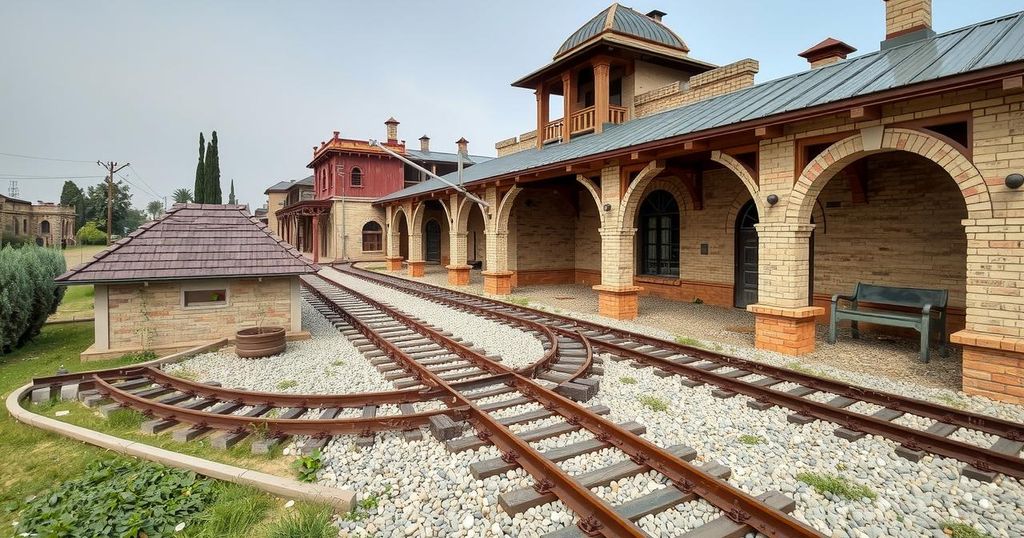Global news
ABDULHAMID II, ABDULKA, ABDULKADIR URALOGLU, ANATOLIAN BROADCASTERS ASSOCIATION, ASIA, BASHA, BASHAR AL - ASSAD, DAMASCUS, DISPATCH, FIGHTER JETS, IRAQ, MEDINA, MIDDLE EAST, MILITARY OPERATIONS, NORTH AMERICA, PALESTINE, REC, REFUGEE CRISIS, SAUDI ARABIA, SYRIA, SYRIAN CONFLICT, TAYYIP ERDOGAN, UNITED STATES, URALOGLU, WAR
Leila Ramsay
0 Comments
Turkey Initiates Restoration of Historic Hejaz Railway in Syria
Turkey is set to restore sections of the historic Hejaz Railway in Syria, reconnecting its rail lines to Damascus. Turkish officials aim to assist in the country’s reconstruction following 13 years of civil war while addressing concerns about existing infrastructure and past sabotage experiences.
Turkey has announced plans to restore sections of the historic Hejaz Railway in Syria, facilitating the reconnection of its rail lines to Damascus, as stated by Turkish Transportation Minister Abdulkadir Uraloglu. This initiative is part of Turkey’s broader efforts to assist in the reconstruction of Syria, which has faced devastation over 13 years of civil war. Uraloglu emphasized the necessity of assessing conditions promptly to initiate the restoration process and acknowledged existing infrastructure while expressing concerns about potential vandalism faced in similar areas, such as Iraq.
The Hejaz Railway, conceived by Sultan Abdulhamid II of the Ottoman Empire in 1900, was designed to link Istanbul to Mecca and was funded mainly through Muslim donations. Its construction aimed not only to enable the Hajj pilgrimage but also to enhance Ottoman administrative control over its territories. Although operational, the railway suffered sabotage during conflicts, notably the British-backed Arab Revolt, ultimately halting before it could reach its intended destination of Mecca.
Currently, Turkish President Recep Tayyip Erdogan has instructed his cabinet members to evaluate the Syrian infrastructure’s deficiencies to present strategies for support to the newly formed caretaker government in Damascus, which has emerged following the recent ousting of President Bashar al-Assad.
The Hejaz Railway is a significant historical project initially envisioned to aid the Hajj pilgrimage and reinforce the Ottoman Empire’s governance over its territories. Constructed from 1900, it was operational in connecting the Muslim populations but faced numerous challenges, including sabotage and historical conflicts. The restoration effort by Turkey arises in the context of geopolitical shifts in the region, especially following the civil war in Syria. As Turkey seeks to rehabilitate its southern neighbor, understanding the railway’s historical significance poses a backdrop for the current infrastructural initiatives.
Turkey’s intention to restore parts of the Hejaz Railway in Syria highlights a strategic move to reestablish transport links and provide aid in post-war reconstruction. Through this initiative, Turkey aims not only to facilitate travel but also to reinforce regional connections historically influenced by Ottoman engineering. The challenges initially faced by the railway reflect a legacy of conflict that continues to shape the modern landscape of the Middle East.
Original Source: www.middleeasteye.net




Post Comment